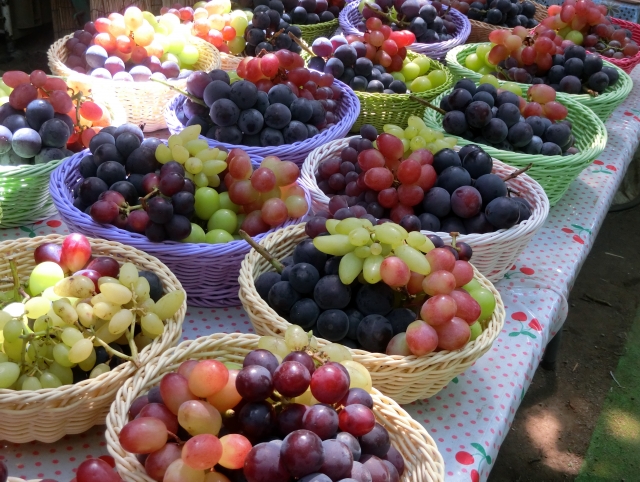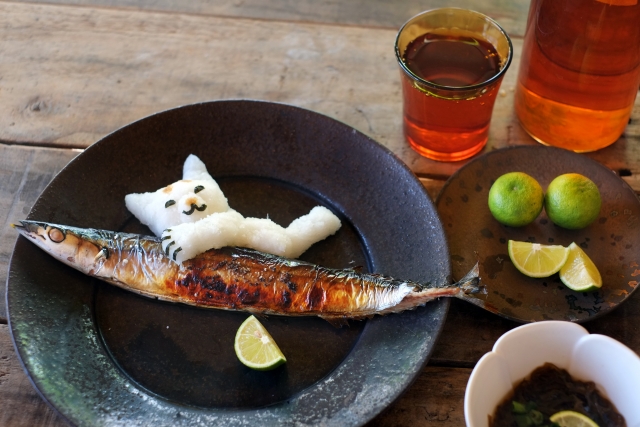Hello everyone,
The long summer vacation has come to an end, but unlike in the past, Japan is experiencing a delay in the arrival of autumn due to factors like global warming leading to rising temperatures. Even in September, the temperatures haven’t dropped significantly, and it still feels like summer is continuing.
Once October arrives, the heat of summer will indeed recede, and autumn will set in. Autumn in Japan brings lower temperatures and humidity, making it one of the most pleasant seasons of the year.
In Japan, there are numerous expressions associated with “Autumn of 〇〇.” These include “Harvest Season,” “Season of Appetite,” “Sports Season,” “Season of Outings,” “Season of Reading,” “Season of Arts,” and more. This indicates how active this season is. We should strive to enjoy this fleeting autumn season to the fullest.
<Various Aspects of Autumn>
① Harvest Season: What Does It Mean?
② Season of Appetite: What Does It Entail?
③ Sports Season and Season of Outings
④ Season of Reading
⑤ High Sky and Fattened Horses in Autumn
① Harvest Season
In Japan, there are many plants that bloom in the summer, bear fruit in autumn, and then wither away. From the plant’s perspective, they produce delicious fruit to attract animals in order to spread their seeds.
While this mechanism is essential for the natural proliferation of offspring, we humans take advantage of it for our sustenance, which might be considered a bit sinful. We should at least remember to express gratitude before eating.
Since it’s the harvest season, you can enjoy a variety of bounties. In Japan, the term “〇〇 Hunting” is used. However, this “hunting” doesn’t involve hunting animals; it refers to activities where you pay a fee to pick and eat or take fruits and vegetables from orchards. Examples include “Grape Picking,” “Pear Picking,” “Apple Picking,” “Mandarin Orange Picking,” “Mushroom Hunting,” and more.
An interesting example is “Momiji (Maple Leaves) Hunting.” It’s a slightly peculiar expression because in this case, “hunting” involves merely admiring the autumn foliage.

② Season of Appetite
Due to the high temperatures and humidity in Japan’s summer, many people experience reduced appetite. As autumn arrives and brings comfortable temperatures and humidity, our appetite naturally increases. It’s a season when food tastes exceptionally delicious.
Representative autumn foods in Japan include Pacific saury (Sanma), roasted sweet potatoes, mushroom dishes, and chestnut dishes. Grilled Pacific saury with salt is especially iconic in Japanese autumn cuisine. And it’s simple and cost-effective to prepare – just grill the saury and add some soy sauce.
While I can’t speak for people from other countries, if you’re visiting Japan, trying these dishes could be a delightful experience.

③ Sports Season and Season of Outings
The pleasant weather of autumn is conducive to sports activities. In Japan, many schools hold their sports festivals during this season, and sports are enthusiastically embraced everywhere. It’s a time to stay active and enjoy a healthy lifestyle.
Additionally, autumn is a great season for travel. Japan, with its volcanic landscape, boasts numerous hot springs, and there are several famous hot spring resorts. Soaking in a hot spring and relishing delicious food is one of the joys of autumn in Japan.
④ Season of Reading
Autumn in Japan is considered an ideal time for reading due to its comfortable climate. However, since the advent of smartphones, we have become engrossed in screens. It might be worth trying traditional reading, focusing solely on the text.
Novels, for instance, lack visual components, allowing you to immerse yourself in imagining the situations and characters. This can foster concentration and creativity. So, why not occasionally set aside your smartphone and engage in a leisurely reading session?
⑤ High Sky and Fattened Horses in Autumn
“High Sky and Fattened Horses in Autumn” is a famous Japanese proverb that aptly captures the essence of the autumn season. Here are a few interpretations of the proverb. If you’re interested in Japan, it might be helpful to understand its meaning:
Abundant Harvest Season: “Fattened Horses” refers to horses that have been freed from arduous labor during the summer and are now consuming plentiful food in autumn, becoming plump. This proverb signifies a season of abundant harvest when agriculture and aquaculture thrive. It represents a time of stable weather and bountiful harvests.
Pleasant Season: “High Sky” indicates clear and high skies. Autumn is typically characterized by pleasant, mild weather, making it a comfortable season for both nature and people. Moreover, the beauty of autumn landscapes, such as colorful leaves and golden rice fields, adds to the pleasantness.
End of Labor and Rest: “Fattened Horses” suggests that the peak of agricultural and labor-intensive work has passed, and the season of harvest and completion of tasks is nearing. Autumn marks a period when people can reap the rewards of their hard work, celebrate the harvest and enjoy relaxation and entertainment.

This proverb encapsulates the idea that autumn is a prosperous and enjoyable season, a time to reap the rewards of labor, and it reflects Japan’s agricultural heritage and values.
As the stifling summer fades and the comfortable autumn air approaches, our sleep duration gradually lengthens. When we’re full, it’s easy to feel sleepy. Nevertheless, let’s be mindful not to doze off during class.










